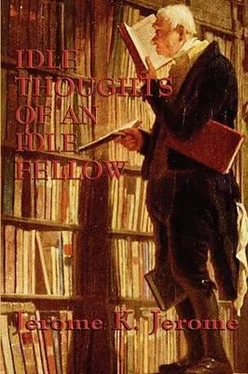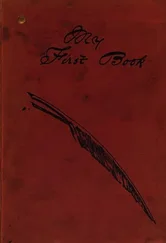But, oh, ghosts, the world would be sadder still without you. Come to us and speak to us, oh you ghosts of our old loves! Ghosts of playmates, and of sweethearts, and old friends, of all you laughing boys and girls, oh, come to us and be with us, for the world is very lonely, and new friends and faces are not like the old, and we cannot love them, nay, nor laugh with them as we have loved and laughed with you. And when we walked together, oh, ghosts of our youth, the world was very gay and bright; but now it has grown old and we are growing weary, and only you can bring the brightness and the freshness back to us.
Memory is a rare ghost-raiser. Like a haunted house, its walls are ever echoing to unseen feet. Through the broken casements we watch the flitting shadows of the dead, and the saddest shadows of them all are the shadows of our own dead selves.
Oh, those young bright faces, so full of truth and honor, of pure, good thoughts, of noble longings, how reproachfully they look upon us with their deep, clear eyes!
I fear they have good cause for their sorrow, poor lads. Lies and cunning and disbelief have crept into our hearts since those preshaving days—and we meant to be so great and good.
It is well we cannot see into the future. There are few boys of fourteen who would not feel ashamed of themselves at forty.
I like to sit and have a talk sometimes with that odd little chap that was myself long ago. I think he likes it too, for he comes so often of an evening when I am alone with my pipe, listening to the whispering of the flames. I see his solemn little face looking at me through the scented smoke as it floats upward, and I smile at him; and he smiles back at me, but his is such a grave, old-fashioned smile. We chat about old times; and now and then he takes me by the hand, and then we slip through the black bars of the grate and down the dusky glowing caves to the land that lies behind the firelight. There we find the days that used to be, and we wander along them together. He tells me as we walk all he thinks and feels. I laugh at him now and then, but the next moment I wish I had not, for he looks so grave I am ashamed of being frivolous. Besides, it is not showing proper respect to one so much older than myself—to one who was myself so very long before I became myself.
We don't talk much at first, but look at one another; I down at his curly hair and little blue bow, he up sideways at me as he trots. And some-how I fancy the shy, round eyes do not altogether approve of me, and he heaves a little sigh, as though he were disappointed. But after awhile his bashfulness wears off and he begins to chat. He tells me his favorite fairy-tales, he can do up to six times, and he has a guinea-pig, and pa says fairy-tales ain't true; and isn't it a pity? 'cos he would so like to be a knight and fight a dragon and marry a beautiful princess. But he takes a more practical view of life when he reaches seven, and would prefer to grow up be a bargee, and earn a lot of money. Maybe this is the consequence of falling in love, which he does about this time with the young lady at the milk shop aet. six. (God bless her little ever-dancing feet, whatever size they may be now!) He must be very fond of her, for he gives her one day his chiefest treasure, to wit, a huge pocket-knife with four rusty blades and a corkscrew, which latter has a knack of working itself out in some mysterious manner and sticking into its owner's leg. She is an affectionate little thing, and she throws her arms round his neck and kisses him for it, then and there, outside the shop. But the stupid world (in the person of the boy at the cigar emporium next door) jeers at such tokens of love. Whereupon my young friend very properly prepares to punch the head of the boy at the cigar emporium next door; but fails in the attempt, the boy at the cigar emporium next door punching his instead.
And then comes school life, with its bitter little sorrows and its joyous shoutings, its jolly larks, and its hot tears falling on beastly Latin grammars and silly old copy-books. It is at school that he injures himself for life—as I firmly believe—trying to pronounce German; and it is there, too, that he learns of the importance attached by the French nation to pens, ink, and paper. "Have you pens, ink, and paper?" is the first question asked by one Frenchman of another on their meeting. The other fellow has not any of them, as a rule, but says that the uncle of his brother has got them all three. The first fellow doesn't appear to care a hang about the uncle of the other fellow's brother; what he wants to know now is, has the neighbor of the other fellow's mother got 'em? "The neighbor of my mother has no pens, no ink, and no paper," replies the other man, beginning to get wild. "Has the child of thy female gardener some pens, some ink, or some paper?" He has him there. After worrying enough about these wretched inks, pens, and paper to make everybody miserable, it turns out that the child of his own female gardener hasn't any. Such a discovery would shut up any one but a French exercise man. It has no effect at all, though, on this shameless creature. He never thinks of apologizing, but says his aunt has some mustard.
So in the acquisition of more or less useless knowledge, soon happily to be forgotten, boyhood passes away. The red-brick school-house fades from view, and we turn down into the world's high-road. My little friend is no longer little now. The short jacket has sprouted tails. The battered cap, so useful as a combination of pocket-handkerchief, drinking-cup, and weapon of attack, has grown high and glossy; and instead of a slate-pencil in his mouth there is a cigarette, the smoke of which troubles him, for it will get up his nose. He tries a cigar a little later on as being more stylish—a big black Havanna. It doesn't seem altogether to agree with him, for I find him sitting over a bucket in the back kitchen afterward, solemnly swearing never to smoke again.
And now his mustache begins to be almost visible to the naked eye, whereupon he immediately takes to brandy-and-sodas and fancies himself a man. He talks about "two to one against the favorite," refers to actresses as "Little Emmy" and "Kate" and "Baby," and murmurs about his "losses at cards the other night" in a style implying that thousands have been squandered, though, to do him justice, the actual amount is most probably one-and-twopence. Also, if I see aright—for it is always twilight in this land of memories—he sticks an eyeglass in his eye and stumbles over everything.
His female relations, much troubled at these things, pray for him (bless their gentle hearts!) and see visions of Old Bailey trials and halters as the only possible outcome of such reckless dissipation; and the prediction of his first school-master, that he would come to a bad end, assumes the proportions of inspired prophecy.
He has a lordly contempt at this age for the other sex, a blatantly good opinion of himself, and a sociably patronizing manner toward all the elderly male friends of the family. Altogether, it must be confessed, he is somewhat of a nuisance about this time.
It does not last long, though. He falls in love in a little while, and that soon takes the bounce out of him. I notice his boots are much too small for him now, and his hair is fearfully and wonderfully arranged. He reads poetry more than he used, and he keeps a rhyming dictionary in his bedroom. Every morning Emily Jane finds scraps of torn-up paper on the floor and reads thereon of "cruel hearts and love's deep darts," of "beauteous eyes and lovers' sighs," and much more of the old, old song that lads so love to sing and lassies love to listen to while giving their dainty heads a toss and pretending never to hear.
The course of love, however, seems not to have run smoothly, for later on he takes more walking exercise and less sleep, poor boy, than is good for him; and his face is suggestive of anything but wedding-bells and happiness ever after.
Читать дальше












